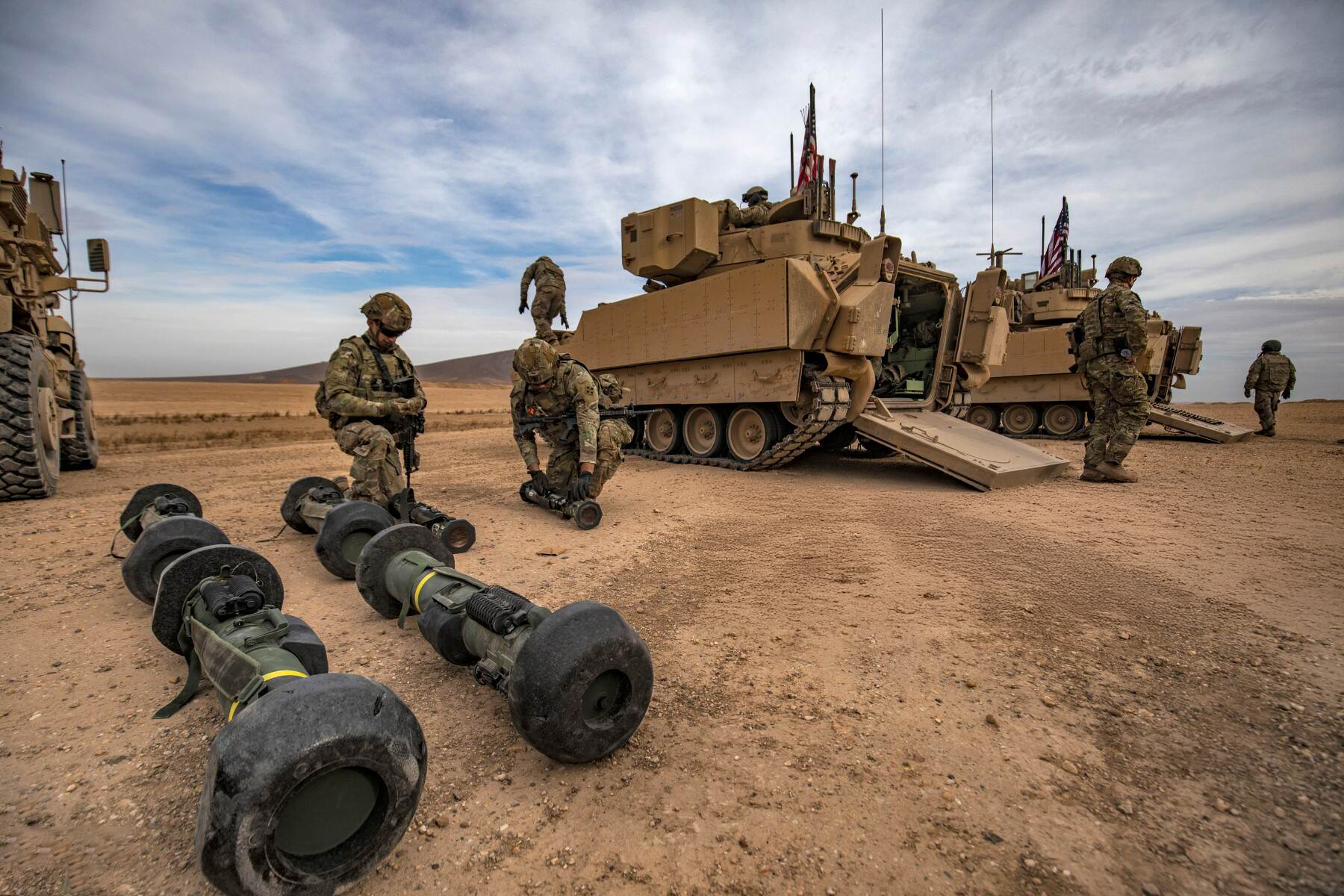U.S.-Led Coalition Sends Reinforcements to Hasakah Province
A military source from the SDF in Deir ez-Zor told North Press that the convoy consisted of more than 15 cargo trucks, refrigerator trucks, and armored vehicles.

ERBIL (Kurdistan24) – The U.S.-led Global Coalition against ISIS deployed new military reinforcements to its base in the Hasakah province of northeastern Syria (Western Kurdistan) on Thursday, as the Syrian Democratic Forces (SDF) reaffirmed their commitment to dialogue with Damascus and regional stability.
A military source from the SDF in Deir ez-Zor told North Press that the convoy consisted of more than 15 cargo trucks, refrigerator trucks, and armored vehicles. The reinforcements entered the Coalition’s base in the town of Shaddadi after departing from Hasakah city.
The source added that the convoy was escorted by a patrol along the al-Khurrafi road, the main route linking Hasakah with Deir ez-Zor. Coalition warplanes and drones provided aerial cover during the transfer to ensure security against potential threats.
On the same day, the SDF Military Council held its regular meeting, led by Commander-in-Chief Mazloum Abdi. In a statement following the meeting, Abdi underscored the need to maintain dialogue with the Syrian government under the framework of the March 10 agreement. He also stressed the importance of upholding the ceasefire and avoiding provocations aimed at destabilizing the region.
The U.S.-led Global Coalition has maintained a military presence in Western Kurdistan since 2014, supporting the SDF in the fight against ISIS. Despite the territorial defeat of the extremist group in 2019, ISIS sleeper cells remain active in the region, particularly in Deir ez-Zor and surrounding desert areas.
The reinforcements come at a time of heightened regional tensions, with Turkey threatening new operations against Kurdish-led forces in Western Kurdistan. The Coalition has regularly reinforced its bases to deter ISIS resurgence and to support the SDF, its main local partner.
Meanwhile, negotiations between the SDF and Damascus have remained fragile, with the Kurdish-led administration seeking recognition of its self-governing structures, while the Syrian government pushes for greater central control. The March 10 agreement, referenced by Abdi, was designed to de-escalate tensions and establish a framework for ongoing talks.
The latest developments highlight the Coalition’s continued commitment to its local partners and the SDF’s emphasis on dialogue and stability amid regional uncertainty.